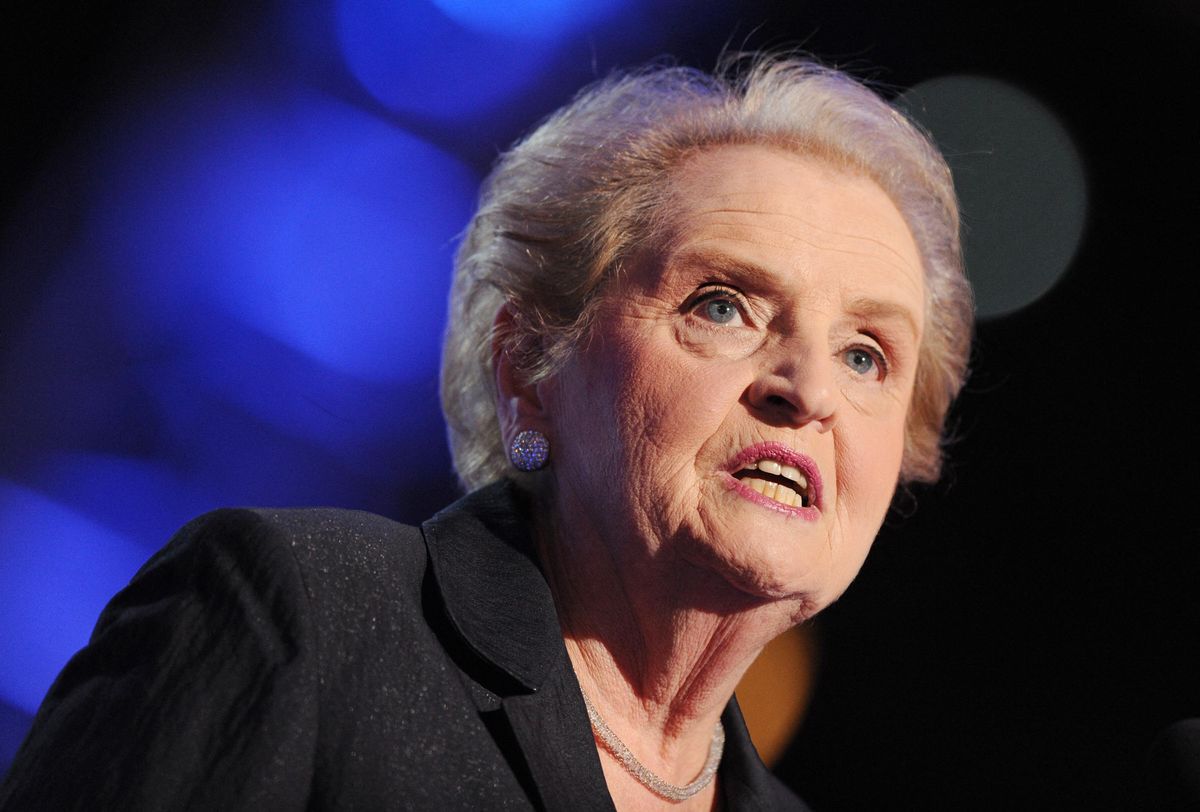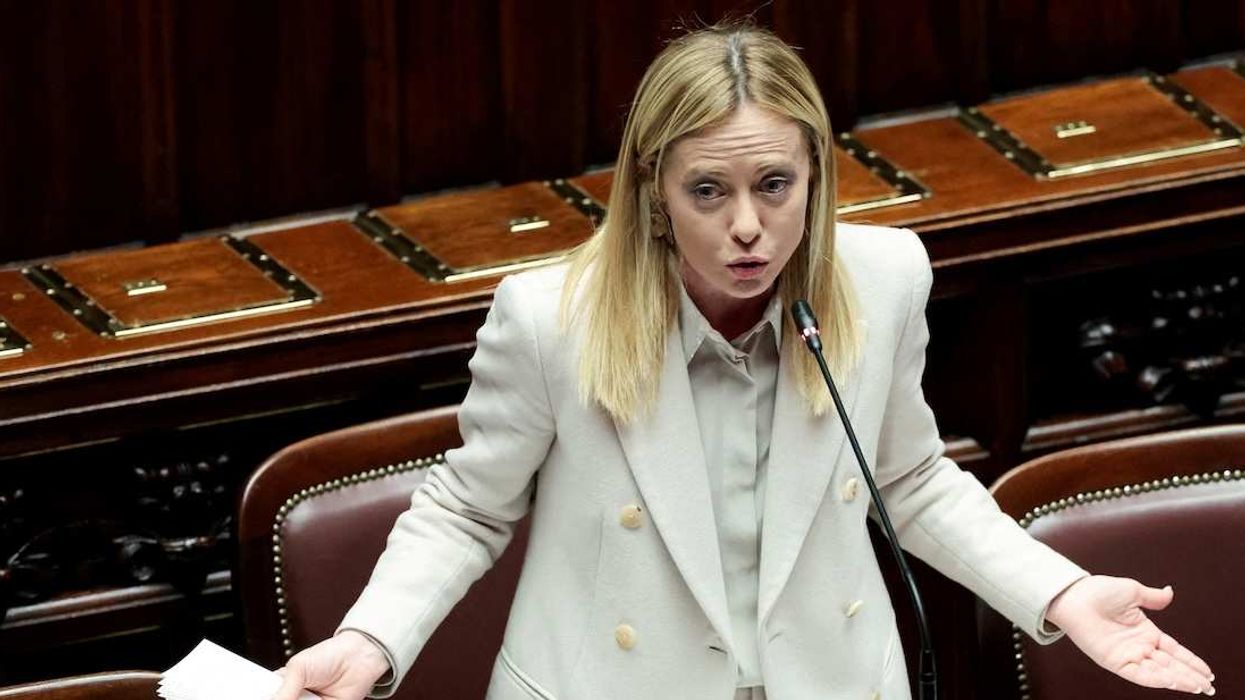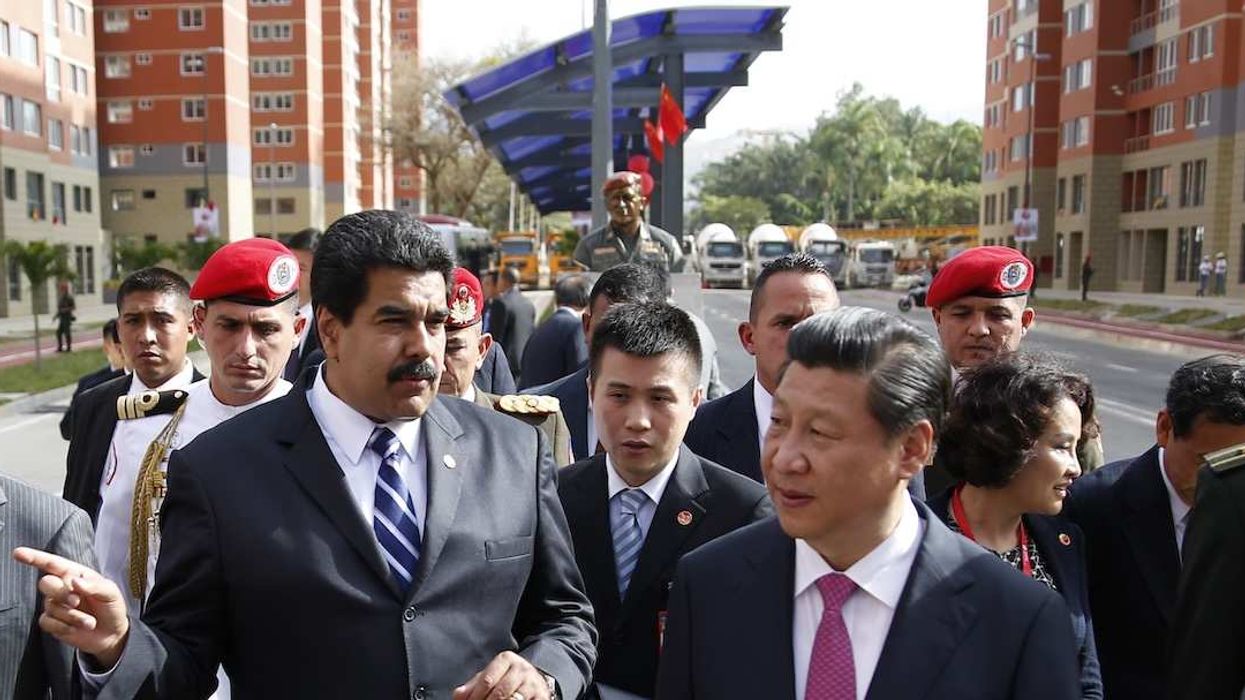Within a few minutes of one another, my mother in Belgrade and my NYC-based boss at Eurasia Group, Ian Bremmer, sent me notes saying former US Secretary of State Madeleine Albright had passed away at the age of 84. Soon after, many friends, colleagues, professors, and social media connections shared the news.
The speed with which this information spread across the globe is not surprising, given Albright's rich political and academic credentials, but also the polarizing attitudes toward her legacy. On one of my recent visits last month to my alma mater, Georgetown University’s School of Foreign Service, where Albright taught, I shared a story with one of the school’s chaplains about my first (and last) encounter with Albright.
Almost three years ago in May 2019, in my last semester at the Hilltop, I learned that Albright had been chosen as the commencement speaker in the SFS’s centennial year. As a Belgrade native and a student of political science and foreign policy, I looked at the events from the spring and summer of 1999 differently than Albright did. To say the least. I did not agree with the school's choice.
I wanted to express my dissent, and my dissatisfaction was notably not an outlier; it was shared among (at least) a dozen professors, students, and staff members from around the world.
I knew that, in a field like ours and at a school as diverse as Georgetown, there could never be a speaker who everyone agreed upon amongst the several hundred students, professors, and staff. Nevertheless, I requested a meeting with Dean Joel Hellman, and after a frank discussion, we agreed to disagree. I thought it would be noted somewhere that someone had protested the school’s choice, and I left the meeting feeling satisfied and grateful for the chance to express my opinion.
That was the day before my commencement.
The next day, as I was putting my graduation regalia over my suit on a 70 degree-plus day with DC humidity — it was just hours before the ceremony — I received an email from the dean’s office saying that Albright would like to meet me before the event.
I quickly gathered my thoughts and went downhill from my Glover Park studio to campus for what I thought would be a quick and courteous chat. The former secretary of state greeted me in a rusty but still confident Serbian, asking what my protest was all about.
We, again, agreed to disagree. My protest was a personal issue, not a high-level political negotiation. I was a conscientious objector to the policies that Albright championed, some of which impeded (not enabled) democracy and prosperity in the Balkans, including in Kosovo. Yet, I had no intention of obstructing the ceremony with signs, shouting, or a walkout. Such breaches of decorum go against how I was raised, and I have deep respect for the institution that gave me the opportunity to meet brilliant people and learn from them. But I remarked in the office that day that my respectful protest was important to me and in line with the history of my small but proud nation in the mountainous Balkan peninsula. It was also in line with the Jesuit mission of the school, and the SFS’s encouragement of polemics on the most pressing global issues.
Albright — herself a one-time Belgrade resident — agreed, saying that if anything, throughout their rich history the Serbs rarely shied away from fighting a more powerful enemy.
In our 45-minute conversation, we talked about my future and desire to work on deepening the relationship between the US and Serbia; to help people understand global geopolitical developments; and to address open and tough questions impacting the Balkan region. But I also aimed to ensure that respectful, substantiated, and constructive criticism reexamines the policies, decisions, and interpretations that made me protest her role in the commencement in the first place.
As I was walking out of the office, she thanked me for the time and the way I voiced my concern. I shared my respect for both her and the dean's time, and for standing behind those (recently challenged) ideals that attract so many young professionals across the globe to the United States and to the best school for foreign policy and diplomacy worldwide: freedom of speech, diversity of opinion, and commitment to dialogue.
An hour or so later, as Albright was handing me my diploma, she pulled me aside and said: “You’ll do good.”
I’m still proud to have protested but even more motivated to continue on that often challenging but motivating mission of doing good. In typical Serbian fashion, I replied that drinks were on me the third time we meet. She winked and smiled.
Strahinja Matejic is an associate in the Office of the President at Eurasia Group.


















